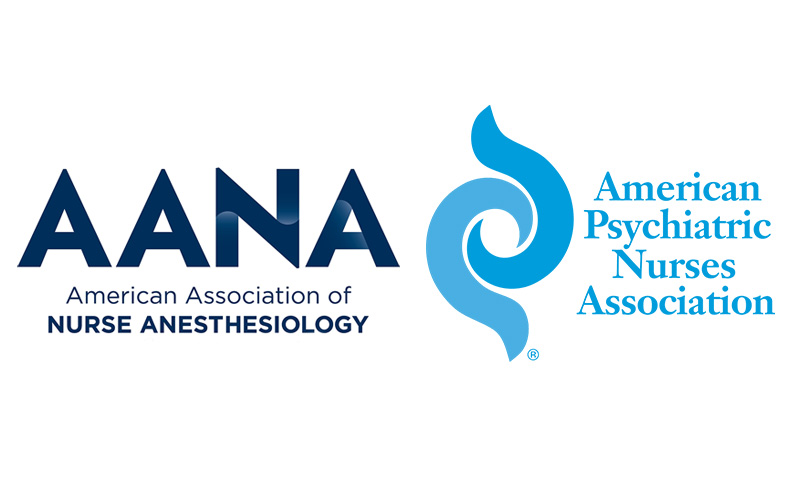In a joint statement, the American Association of Nurse Anesthesiology (AANA) and the American Psychiatric Nurses Association (APNA) said the groups “support a patient-centered, interdisciplinary approach to providing care and treatment to persons with psychiatric disorders who may benefit from ketamine infusion therapy.”
Ketamine infusion therapy has demonstrated antidepressive properties and increasingly is being used to treat psychiatric disorders such as major depressive disorder, bipolar disorder, treatment-resistant depression and post-traumatic stress disorder.
“The AANA and APNA recognize the expertise of certified registered nurse anesthetists (CRNAs), psychiatric-mental health registered nurses (PMH RNs), and psychiatric-mental health advanced registered nurses (PMH APRNs) who are educated and qualified to administer ketamine infusion therapy for psychiatric disorders in accordance with professional scope and standards of practice, federal and state law and facility policy,” the associations said.
When administering ketamine for treatment of psychiatric disorders, CRNAs collaborate with psychiatric-mental health professionals whose practice includes diagnosing psychiatric disorders within their professional and state scope of practice.
As part of the collaboration, CRNAs obtain a referral or past medical records, including a psychiatric history, medication list, and diagnosis prior to providing ketamine infusion therapy for psychiatric disorders.
“CRNAs are trained in delivering professional, compassionate anesthesia care and have the knowledge and training to deliver and monitor medications, such as ketamine,” AANA President Dru Riddle said. “This expertise makes them an ideal partner in the delivery of ketamine infusion therapy for psychiatric disorders.”
“Psychiatric-mental health (PMH) nurses are educated and clinically trained to offer evidence-based care and treatment to persons with mental health needs across the lifespan, including those who may benefit from ketamine infusion therapy,” APNA President Lora Peppard said in a news release. “We are committed to interprofessional collaboration to provide the best possible care for those we serve, and we value the complementary expertise that CRNAs bring when working alongside PMH nurses in this area.”
Role of the CRNA
The CRNA’s role in ketamine infusion therapy may include, but is not limited to, reviewing healthcare records; obtaining a health history; conducting a pre-infusion assessment and evaluation; ordering and evaluating diagnostic tests; ordering or prescribing medications; initiating, maintaining, titrating and discontinuing the infusion; monitoring the patient; and conducting post-infusion assessment and evaluation.
PMH RNs and PMH APRNs specialize in promoting mental health through the assessment, diagnosis and treatment of behavioral problems, mental disorders and co-morbid conditions. PMH APRNs work with patients who may benefit from ketamine infusion therapy by collecting and synthesizing health data and analyzing that data to determine diagnosis and areas of focus for care and treatment, as well as utilizing prescriptive authority, referrals and procedures, treatments and therapies in accordance with applicable law.
“This collaboration exists to increase communication between the anesthesia and psychiatric-mental health professionals in order to create an optimal environment for safe care,” the associations explained in a news release. “CRNAs and PMH nurses complement each other’s skills and knowledge in the assessment, management and delivery of ketamine infusion therapy for appropriate psychiatric disorders with a focus on improved patient safety, outcomes and general well-being.”

